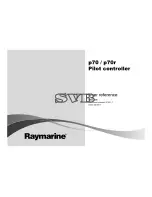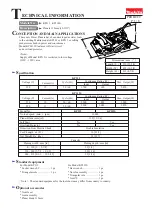
Software
•
Burn the provided SD image (located on the sales page for gbc aio) to an SD card that is atleast
8gb.
•
Once the image is burned, use the retopie menu to expand the sd card memory if you used an
sd card larger than 8gb. This is important, otherwise you wont be able to use your full sd
memory.
•
Use the provided wpa configuration file to setup your wifi. Type your wifi name and password in
the quotation marks (keep the quotation marks), adjust your country if you are not in the US,
and then place the text file in your boot folder from a computer. When you start up your
system, if the information you provided was correct, you should now be connected to wifi and
be able to ssh roms into your system. Check by using going to the retropie menu and clicking on
the wifi setting. If you are connected, your wifi name will be displayed. Select exit and press the
start button to go back to retropie.
•
Once you are done using wifi for transferring roms, you must go back to the wifi setting in the
retropie menu and remove your wifi connection. Keeping the wifi connected will cause lag in
your games and can deplete the battery faster.
Extras
1.
The SD card is accessible through the battery port. Use your thumb nail to gently pull the card
forward to remove. To avoid risk of damaging your card, do not use excessive downward force.
2.
Hard reset switch is located at bottom of shell in the OEM power cable port. It is hidden behind
the port hole to avoid accidental rest. If there is a software issue preventing the board from
powering down using the switch, simply set the slide switch to off position and then use a
narrow object like a pencil to push the hard reset button.
3.
Shoulder button breakout pads can be used for installing shoulder buttons. They are labeled as L
and R on board, and have a ground pad located next to each for convenience. I currently do not
have any designs for shoulder buttons so this would have to be DIY.
4.
Setup digital audio control and map it to hotkeys on your system for a better audio experience.
The volume wheel may not completely cut the sound when all the way down, so digital volume
control (with the wheel all the way up) is recommended, but not necessary.
5.
The USB port is 100% optional. As long as your pi zero is a W (wifi enabled), then any setup
necessary can be done purely from ssh’ing into the system from a computer.
6.
The Gameboy controls can be used to navigate the system level menus. The dpad will give you
direction controls (mapped to arrow keys) and the start button will let you select (mapped to
enter key).
7.
There is an optional audio gain located under the screen ribbon cable. The current gain is set to
9db. Solder the center pads together to set a gain of 12db. Solder a 100kohm resistor between
the 2 circular pads on the side for a 15db gain.
You can only choose one, do not solder the
center pads and solder resistor simultaneously.
Results may vary and you may need a larger
speaker to hear noticeable differences. It is recommended to keep the default settings.
8.
Brightness can be adjusted by turning the small potentiometer on the back of the board. It can
only be adjusted when the back shell is off.
If your screen in black, make sure the pot is turned
completely counter-clockwise


























